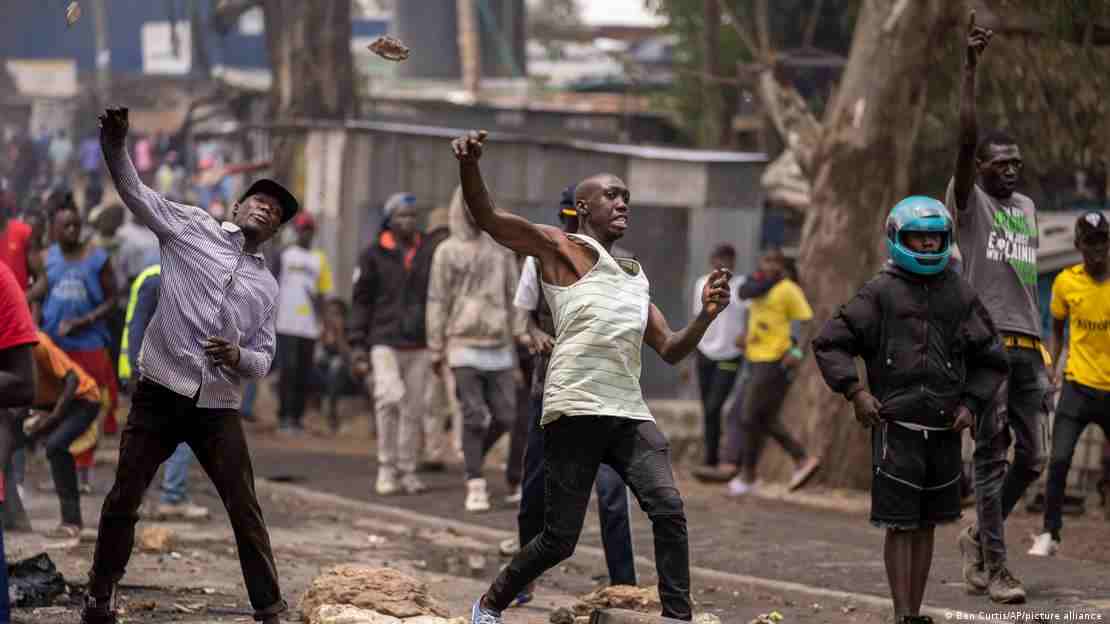On Monday, Kenyan opposition leader Raila Odinga announced that he was willing to participate in negotiations after being appealed to by President William Ruto. As a result, the planned anti-government protests were cancelled.
Over the last two weeks, thousands of Kenyans have taken to the streets to protest against the high cost of living and the possibility of electoral fraud in the previous year’s election. Unfortunately, all three of these demonstrations were disrupted by violence, resulting in three fatalities, over 400 injuries, and some cases of property looting.
Kenyan law enforcement officials used tear gas against protesters opposed to the government at a rally. The protests were organized by Raila Odinga, leader of the opposition party. Odinga had contested Ruto’s victory in the 2022 elections.
On Sunday evening, Odinga announced that he was calling off the fourth rally after Ruto proposed the formation of a bipartisan committee of legislators to address concerns about the electoral proceedings. Odinga said that he viewed the president’s proposal as a positive step forward and an olive branch, despite his contested election loss to Ruto.
At a press conference, Odinga emphasized that while they were retracting their demonstrations for April 3, 2023, the right to gather, demonstrate, petition, and speak is still strongly protected by the constitution. The opposition party declared that they would exercise their right to organize demonstrations if the process did not yield the desired result.
The opposition has been calling for changes to the electoral committee, including assurances that the leader will not be able to assemble the organization with those who back them. Odinga proposed that a balanced parliamentary process with chairpersons from both sides and supported by external professionals should be implemented.
He warned that if there was not enough attention or feedback from Ruto, the demonstrations would resume within seven days. Odinga further declared that the opposition would talk to the government about the expensive cost of living, which was the motivation behind many demonstrators. He suggested that subsidies should be implemented during times of difficulty to reduce the cost of living.
Ruto’s administration has eliminated financial assistance for fuel, maize, and electricity, which has led to widespread protests across the country.
Various religious organizations implored the government and the opposition to explore the possibility of dialogue as a means of averting a descent into post-election violence, which resulted in the death of more than 1,200 individuals in 2007.
During a speech broadcasted across the country, Ruto implored Odinga to utilize the legislature, rather than public demonstration, to voice his grievances. The speaker implored Raila Odinga and the opposition to discontinue the protests and give the collaborative process an opportunity to move the nation ahead. He also asked Kenyans to keep the peace and stay in compliance with the law.
Ruto declared that “trouble is sure to follow when accountability and oversight are disregarded.” He reiterated the importance of communication between both sides regarding topics relevant to the Kenyan public. In that manner, the system of balance and control is preserved.
Foreign missions from various countries, including the United States and the United Kingdom, have expressed their concern over the ongoing unrest in Kenya. They have urged for composure and peaceful negotiations to resolve the current situation. The African Union has also issued a plea for the unrest to be resolved without further violence.
The protests in Kenya have resulted in clashes between police forces and demonstrators, with the use of tear gas and water cannons to disperse crowds. The violence has also led to the destruction of public and private property, including places of worship, buildings, enterprises, and vehicles set ablaze by fire.




